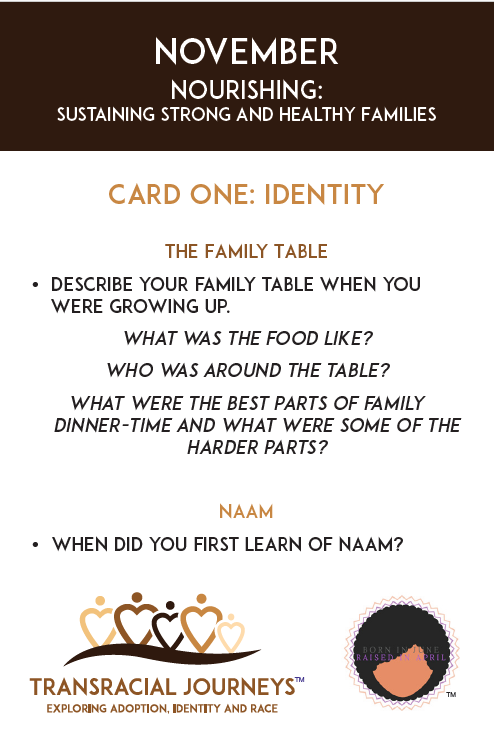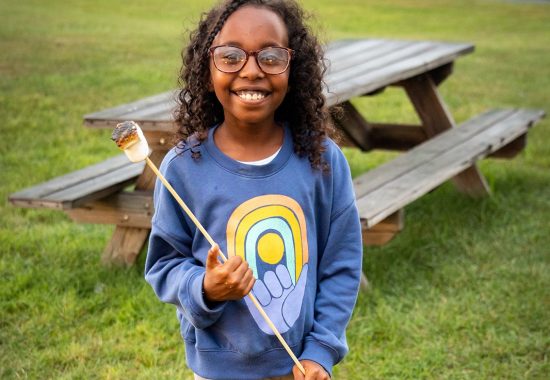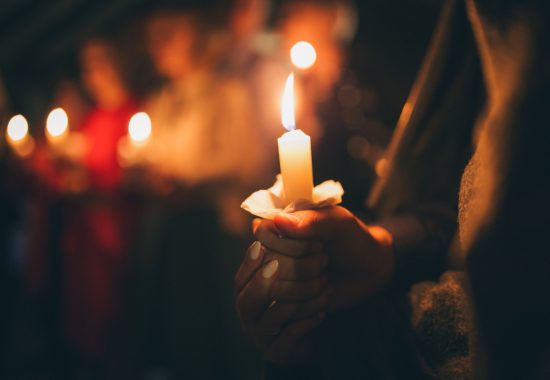Thanksgiving can be one of the more complicated historical holidays, and for many in the United States, one of the more family and food-centric holidays. Whether you are a family that chooses not to mark Thanksgiving in a traditional way, or your family goes all out with a big Thanksgiving celebration, this month we are thinking about the family table and what might be true when there are differences of race and culture with transracial adoption. November also brings National Adoption Awareness Month, (NAAM) which can be challenging for some adopted persons. This month prompts on your activity deck include questions for both areas of discussion.
November Pro-Tip to Foster Conversations About Transracial Adoptions
At Transracial Journeys we send out cues for conversations each month. Our Transracial Journeys card deck contains 3 cards for each month that the children use to ask their parents questions. Below are the questions for November. Before getting started, read the parent pro-tip each month.
November Pro-Tip for Parents: Talking about family and complicated history can activate deep-seated emotions and feelings. Make sure you have the support you need to process your feelings before and after the conversations you may have with your children.

CARD ONE: IDENTITY
The Family Table: Describe your family table when you were growing up. What was the food like? Who was around the table? What were the best parts of family dinner-time? What were some of the harder parts?
NAAM: When did you first learn of NAAM?
CARD TWO: RELATIONSHIPS
The Family Table: Who were the people sitting around your family table?
NAAM: What does NAAM mean to you?
CARD THREE: EMBRACING AND FACING DIFFERENCES OF RACE AND CULTURE
The Family Table: Were there ever people of different races around your family table?
NAAM: How can we find our own unique ways to honor and mark NAAM?
This post is from our November, 2023, newsletter. If you would like to get our newsletter in your inbox each month, please subscribe.



